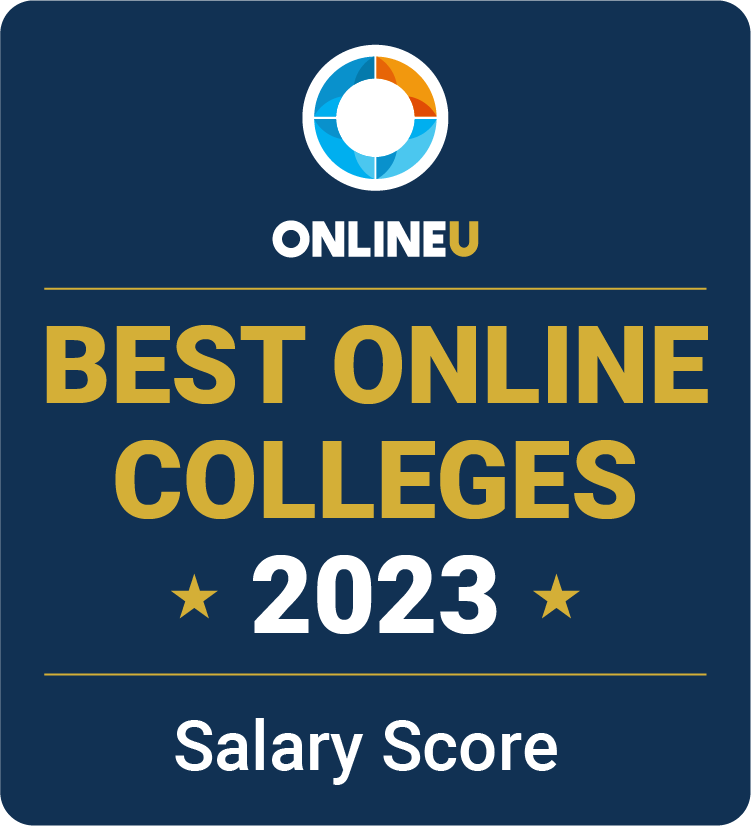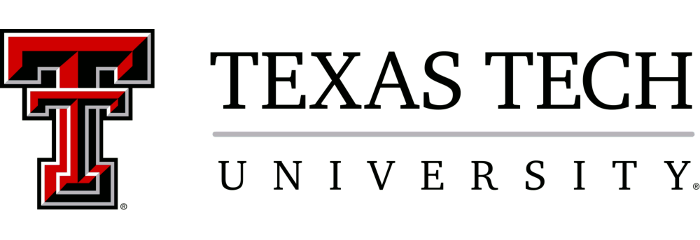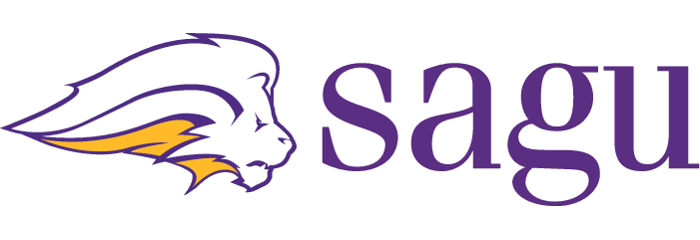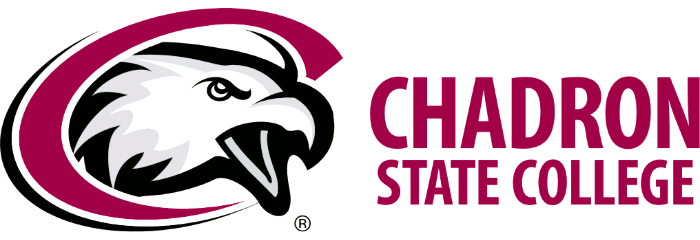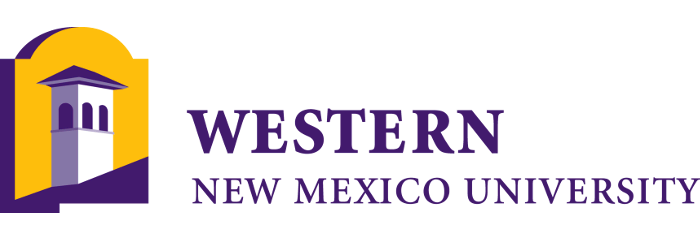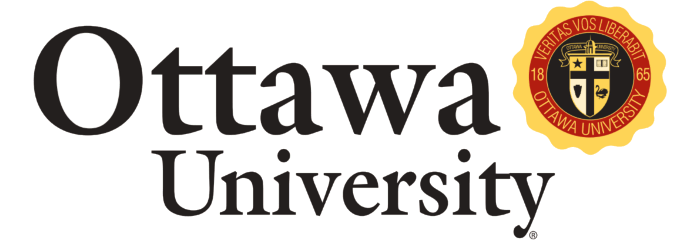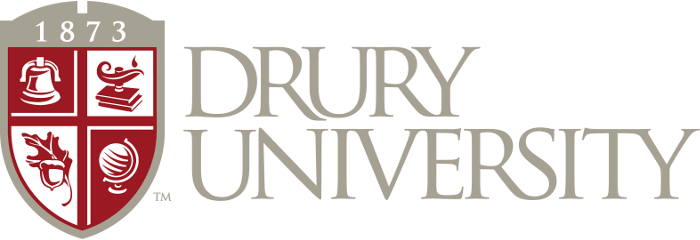2023 Best Online Secondary Education Degrees
If you're interested in becoming a teacher, a bachelor's degree in teaching is the first step. Earning a secondary education degree online through a four-year program can result in being qualified for both high school and middle school teaching positions. In general, high school students are usually between 14 and 18 years old, while middle school students are usually between 10 and 13 years old. With a secondary education degree, you'll likely end up focusing on teaching a specific subject, such as Mathematics or English.
Our list below contains the best online secondary education degrees in 2023 based on the most popular programs currently available. View our methodology for more details about our list or learn more about OnlineU.
Learn more about how we make money. ">ADVERTISEMENT
Online Secondary Education Bachelor's Degrees You May Be Interested In
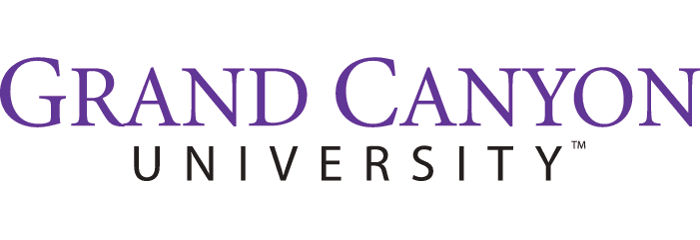
Grand Canyon University
Annual Tuition: $17,800
3 Programs (view all)

Liberty University
Annual Tuition: $11,700
6 Programs (view all)

Western Governors University
Annual Tuition: $6,670
7 Programs (view all)
List Of Accredited Online Secondary Education Schools
| School | Online Enrollment | Annual Tuition |
|---|---|---|
| Western Governors University | ||
| Texas Tech University | 1,931 | $19,260 |
| Southwestern Assemblies of God University | 739 | $19,834 |
| Chadron State College | 601 | $7,586 |
| Western New Mexico University | 487 | $13,539 |
| Touro University Worldwide | 466 | $14,600 |
| Thomas University | 333 | $16,940 |
| Chaminade University of Honolulu | 287 | $26,134 |
| The Baptist College of Florida | 280 | $11,700 |
| Ottawa University Online | 205 | $12,316 |
| Hope International University | 198 | $33,400 |
| Veritas Baptist College | 191 | $6,260 |
| Prescott College | 167 | $32,553 |
| Arizona Christian University | 109 | $27,890 |
| Calvary University | 92 | $11,164 |
| Hobe Sound Bible College | 85 | $6,940 |
| Judson College | 50 | $18,540 |
| Drury University | 5 | $29,665 |
Western Governors University
- Annual Tuition: $6,670
- Locations: Salt Lake City (UT)
- Accreditation: NWCCU
Western Governors University (WGU) is a large, private institution that offers several online Bachelor’s of Science degrees for Secondary Education. These science and math programs lead to licensure and teaching at various levels. These degree programs take between three and four years with a full-time schedule, including Demonstration Teaching, a Cohort Seminar, and a Professional Portfolio. All programs offer classes in their specific concentrations as well as teaching classes, such as Educational Technology for Teaching & Learning, Secondary Reading Instruction & Interventions, and Fundamentals of Diverse Learners. Some programs send students laboratory equipment to assist their coursework at home.
At WGU, students use Handshake to access their coursework. The coursework is mostly online, except for Demonstration Teaching.
Texas Tech University
- Annual Tuition: $19,260
- Locations: Lubbock (TX)
- Accreditation: SACS COC
Texas Tech University (TTU), a public institution, offers several online Bachelor of Science in Education with multiple degrees at the secondary level. Some of the concentrations offered include Middle-Level Language Arts, Secondary English, and Elementary EC-6 Certification — all requiring between 120-124 credit hours. TTU’s acceptance rate is 70%, and it has a graduation rate of 62%.
TTU online students complete coursework delivered asynchronously and synchronously on the LMS Blackboard. An online bachelor’s in secondary education gives students the skills and knowledge to deliver curricula for grades 7-12. Sample courses are Early Literacy in the School Setting, Elementary Problem Solving, and Adolescent Literature. Students can also expect to complete supervised student teaching. Prospective career paths for graduates include math teachers, substitute teachers, and program coordinators.
Southwestern Assemblies of God University
- Annual Tuition: $19,834
- Locations: Waxahachie (TX)
- Accreditation: SACS COC
Southwestern Assemblies of God University (SAGU) is a private, nonprofit, Christian institution offering two online degrees in secondary education: (1) a Bachelor of Arts in English, Language Arts and Reading (Middle and Secondary Education) (124 credit hours) and (2) Bachelor of Arts in Social Studies and History (Middle and Secondary) (127 credit hours). Full-time students typically take four years to complete these programs online. SAGU’s acceptance rate is 89%, and it has a 44% graduation rate.
SAGU facilitates online learning through Blackboard, and these remote programs focus on teaching grades 7-12. Sample courses include Advanced Literary Instruction, Classroom Management, and Instructional Technology. Both programs require students to complete supervised student teaching. Potential career paths include history teachers, English teachers, and teaching assistants.
Chadron State College
- Annual Tuition: $7,586
- Locations: Chadron (NE)
- Accreditation: HLC
Chadron State College (CSC) is a small, public institution. CSC offers an online Bachelor of Science in Education - Secondary (6-12, 7-12, PK-12, K-12) requiring 120 credits. CSC’s BS in Education offers both Field Endorsement Programs and Subject Endorsement Programs, meaning you can specialize in a general field — like English or Mathematics — or a specific subject — like Biology or History. The program takes about four years to complete, with the last year being a “Professional Year” that includes a capstone course and teaching internship. This major offers education courses that include Technology Resources for Learning, Assessment Foundations, and Differentiated Instruction for Diverse Classrooms.
At CSC, students use Canvas to access their coursework, which is asynchronous.
Western New Mexico University
- Annual Tuition: $13,539
- Locations: Silver City (NM)
- Accreditation: HLC
Western New Mexico University (WNMU) is a public institution that offers an online Bachelor of Arts or Science in Secondary Education requiring 120 credit hours. Prospective students can expect to spend four years completing the program. The university accepts 100% of applicants, and it has a 32% graduation rate.
WNMU facilitates asynchronous and synchronous online learning on the learning management system (LMS) Blackboard. The college's online bachelor’s in secondary education covers classroom management and assessment methods. Courses include Multicultural Education, Technology Integration in the Classroom, and Reading Skills Secondary Education. Students are required to complete secondary practice teaching, a seminar, and pass all PRAXIS tests. Graduates may go on to enter careers as social studies teachers, curriculum developers, and education coordinators.
Chaminade University of Honolulu
- Annual Tuition: $26,134
- Locations: Honolulu (HI)
- Accreditation: WSCUC
The Caminade University of Honolulu (CUH) is a small, private institution. It has an online Bachelor of Science in Secondary Education that requires 120 credits. CUH provides students with knowledge about learner development and diverse environments, which helps prepare students to optimize their learning styles for secondary students. Some core courses in this program include Managing School Environments, Introduction to Exceptional Children, and Curriculum & Instruction. The program also requires Seminar and Student Teaching courses. It has four licensure tracks: (1) English, (2) Social Studies, (3) Science, and (4) Mathematics. Students can complete their degree in four years with a full-time schedule. Graduates of CUH’s program are eligible for licensure in the state of Hawaii.
At CUH, students use Canvas to access their coursework, which is mostly online and asynchronous.
Ottawa University Online
- Annual Tuition: $12,316
- Locations: Ottawa (KS)
- Accreditation: HLC
Ottawa University Online (OU) is a small, private institution. OU offers an online Bachelor of Arts in Mathematics - Secondary Education, which requires 124 credit hours. Some core classes in this major include Educational Psychology, Foundations of Schools in a Diverse Society, and Transition to Higher Mathematics. The program also requires a capstone course — called Integrative Seminar in Mathematics — in which students create an integrative project. OU’s online degree program takes four years with a full-time schedule, and graduates go on to work as teachers and researchers.
At OU, students use Blackboard to access their coursework, which is 100% online and asynchronous.
Arizona Christian University
- Annual Tuition: $27,890
- Locations: Phoenix (AZ)
- Accreditation: HLC
Arizona Christian University (ACU) is a small, private university. ACU offers an online Bachelor of Science in Secondary Education, which includes specialization options in business, language arts, history, math, and science. These programs require 120 credit hours, and students with a full-time schedule can complete their chosen degree in four years. Education courses in this major include Tests & Measurements, Educational Psychology, and Classroom Management. This program requires Directed Student Teaching and a Secondary Education capstone course, both of which provide graduates with teaching experience before they pursue careers in education.
At ACU, students use Canvas to access their online coursework, which is asynchronous.
Drury University
- Annual Tuition: $29,665
- Locations: Springfield (MO)
- Accreditation: HLC
Drury University (DU) is a small, private institution that offers an online Bachelor of Science in Secondary Education, which requires 124 credit hours and takes four years with a full-time schedule. This program has three content areas for certification: (1) Biology, (2) English & Writing, and (3) History. All three programs have courses specific to them, but some general education courses include Collaborative Classroom Environments, Diversity & Social Justice in Education, and Introduction To Mild/Moderate Disabilities. Students get experience teaching and developing curriculum before they graduate to become teachers and school administrators.
At DU, students use Moodle to access their coursework, which is completely online and asynchronous.
Online Bachelor's Degrees in Secondary Education
Aspiring teachers can earn a degree in secondary education entirely through e-learning by taking fully online classes. They can even complete practicum and fieldwork requirements at schools near their home.
These 100% online programs are designed to prepare graduates to work as licensed classroom teachers in middle and high schools.
Teacher candidates study current theories and strategies in education while developing skills to effectively teach and manage their classes. All programs typically require 120 credit hours and are generally structured to be completed in four years of full-time study. Some online secondary education degrees even offer accelerated tracks and accept work experience as credit hours, so students can graduate faster.
As a next step, students may be interested in learning about online master's in secondary education programs.
Funding a Secondary Education Degree
Students who opt for online learning may be able to reduce the cost of their college degree program by eliminating expenses for on-campus housing and transportation. Non-resident students may also benefit from choosing an online program, as many schools' online tuition rates are lower than their out-of-state student tuition rates.
Total costs can be further reduced by applying for financial aid. Some institutions offer scholarships and grants for students in need, and many states have government-funded financial aid programs. Student loans can also be taken out to help fund education.
Research how you can save money in college while you earn your secondary education degree online.
Common Secondary Education Courses Online
The curriculum for a bachelor's in secondary education degree is based on the grade level that future graduates intend to teach. For example, if prospective educators plan to teach middle school, they would typically take courses about how to instruct their students on an array of subjects, such as English, math, and history. By contrast, future high school teachers are more likely to take classes focused on teaching a single content area. All programs, however, include general education classes, foundational courses about pedagogy, and electives in practical teaching methods and skills.
Some programs will work with institutions local to the online student and help them find these fieldwork placements.
While online secondary education degree programs vary widely at the bachelor's level, they all culminate in several field experience courses, which serve as a program’s capstone. Depending on the program, fieldwork can take several forms: in-class observation, internships, and unpaid student teaching. Some programs will work with institutions local to the online student and help them find these fieldwork placements. The fieldwork component varies because programs are generally designed to meet a school's state licensing requirements.
Below are some typical online courses in secondary education programs:
Classroom Management and Engagement
Creating a positive, productive learning environment in the classroom is essential to student and teacher success. This course introduces behavioral concepts and learning principles that teachers can use to engage their students' attention and effectively manage their classes.
Curriculum and Assessment
In this course, teacher candidates learn about curriculum development by planning and sequencing lessons to meet curricular goals and produce desired learning outcomes. Coursework may also include the administration and interpretation of standardized tests.
Diverse Learners
Children with mild to moderate disabilities, or particularly strong abilities in specific areas, may need additional support from educators. This course trains teacher candidates to identify specific learning patterns and provide customized special education instruction that helps many types of learners progress with their education.
Educational Technology for Teaching and Learning
Technology has proven to be a valuable asset for teaching many subjects, particularly STEM. In this course, teacher candidates discover a number of technological tools and how to incorporate them strategically into their lesson plans. They also learn to assist their students in developing technology skills.
Educational Psychology of Children and Adolescents
By understanding how adolescents grow and develop cognitively, socially, emotionally, and physically, teachers are better prepared to work with young adults. Teacher candidates learn to use the principles of psychology to construct healthy learning environments that support and motivate their students.
Foundations of Education
This course provides a comprehensive summary of the historical, psychological, sociological, and philosophical underpinnings of the U.S. education system. At the end of the course, teacher candidates may be required to define their personal philosophy of education.
Are you unsure about pursuing secondary education? You may also be interested in exploring teacher licensure programs or similar degree programs, such as special education, education, or educational leadership.
Careers in Secondary Education
Teaching is the primary career path for students with online degrees in secondary education. In addition to having solid lesson planning and instructional skills, teachers at a secondary school must be adept at active listening and clear verbal communication.
Depending on their state licensing requirements, graduates may qualify to teach one or multiple subject areas at the middle or high school level.
- According to the BLS, the median annual salary for middle school teachers is $61,320, and the role’s projected growth rate of 4% is expected to result in about 47,300 new jobs each year through 2031.
- High school teachers earn a slightly higher median salary of $61,820, and this level has more employment opportunities, with a 5% growth rate and 77,900 new openings projected to emerge annually throughout the decade.
Career Satisfaction
Secondary teachers report having mixed feelings about their occupation. The BLS also notes that while many teachers find personal satisfaction in educating young minds, some are frustrated by the working conditions sometimes found in public schools — from overlarge classes to a lack of current tools and resources.
The recent pandemic has had a significant impact on teachers, especially regarding how they view their roles. In a 2020 survey of more than 1,000 educators, 46% believed that their work had become more meaningful, and 68% felt the public now placed a greater value on the importance of teachers.
Alternatives
Graduates with secondary education credentials can pursue other alternatives besides being a traditional teacher. Some interested in professional development may decide to take on additional training and teach special education or English as a second language. Experienced educators may consider earning an online master's degree in educational leadership so they can take on administrative roles, such as middle or high school principal.
Explore our career finder tool to see where popular programs can lead you on your career path.
Licensing Requirements
Before enrollment, prospective online students should ensure that the program they choose prepares them to meet all of the requirements in the state where they plan to work — not just the state where the school is located. Each state has unique requirements for teaching licenses. In some states, secondary educators may need teaching certification to teach a single content area or multiple subjects and to teach specific grade levels.
The eligibility requirements to sit for a state's teacher certification exam also vary but may include specifications for college accreditation, number of completed practicum hours, types of fieldwork, teacher certification programs, and more.
For additional resources, check out our college student guides, including a guide for underrepresented students, a mental health guide, and more!
Is a Bachelor’s Degree in Secondary Education Worth It?
Benefits
A solid foundation
Studying secondary education online can prepare you for further education and more career options. Jobs in curriculum design and educational administration require a master’s degree and many principal and supervisor jobs require a doctorate. So, a bachelor’s in secondary education can start you on a long path.
Variety of careers
A general degree in secondary education can lead to a more specialized path. If you’re interested in bilingual education, high school education, middle school education, physical education, or another specialized field, then a bachelor’s degree in secondary education can start you on that path.
High satisfaction
An ongoing Career Explorer study of 17,581 teachers rates their job satisfaction at 3.4 out of 5 stars, which shows that many teachers find meaning in their work. It can be a rewarding career, and teachers often remain working in the education sector for years.
Drawbacks
Underfunded
Many classrooms lack basic resources, so teachers may have to spend their own money on decorations and supplies. How much a teacher is given to work with varies depending on their state, community, and student demographic.
Underpaid
Unfortunately, a job as critical as teaching doesn’t come with a large salary. Many states have teacher unions, but it can still be hard to make a living wage as a teacher.
Unpaid Summers
While some districts pay teachers during the summer, not all of them do. It can take careful planning to make your limited paychecks stretch through those off-months, and some teachers have to find part-time jobs.
Bottom Line
Getting a secondary education online degree can be rewarding and satisfying. If you’re interested in teaching, then pursuing a bachelor’s degree is the right choice for you. Beyond a bachelor’s, graduate education can lead to a career as a superintendent, principal, education administrator, and more.
Related Articles
2023 Best Online Education Degrees
Explore our 2023 list of the best online education degrees at the bachelor's level. All online schools listed are accredited.
By OnlineU Staff Writers | 2/15/2023
